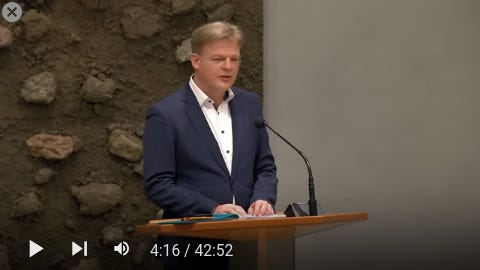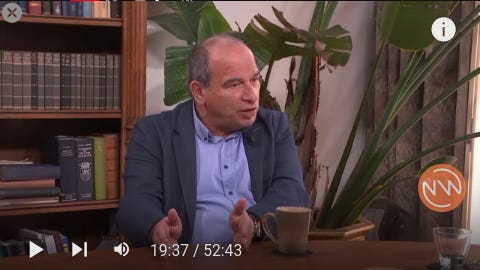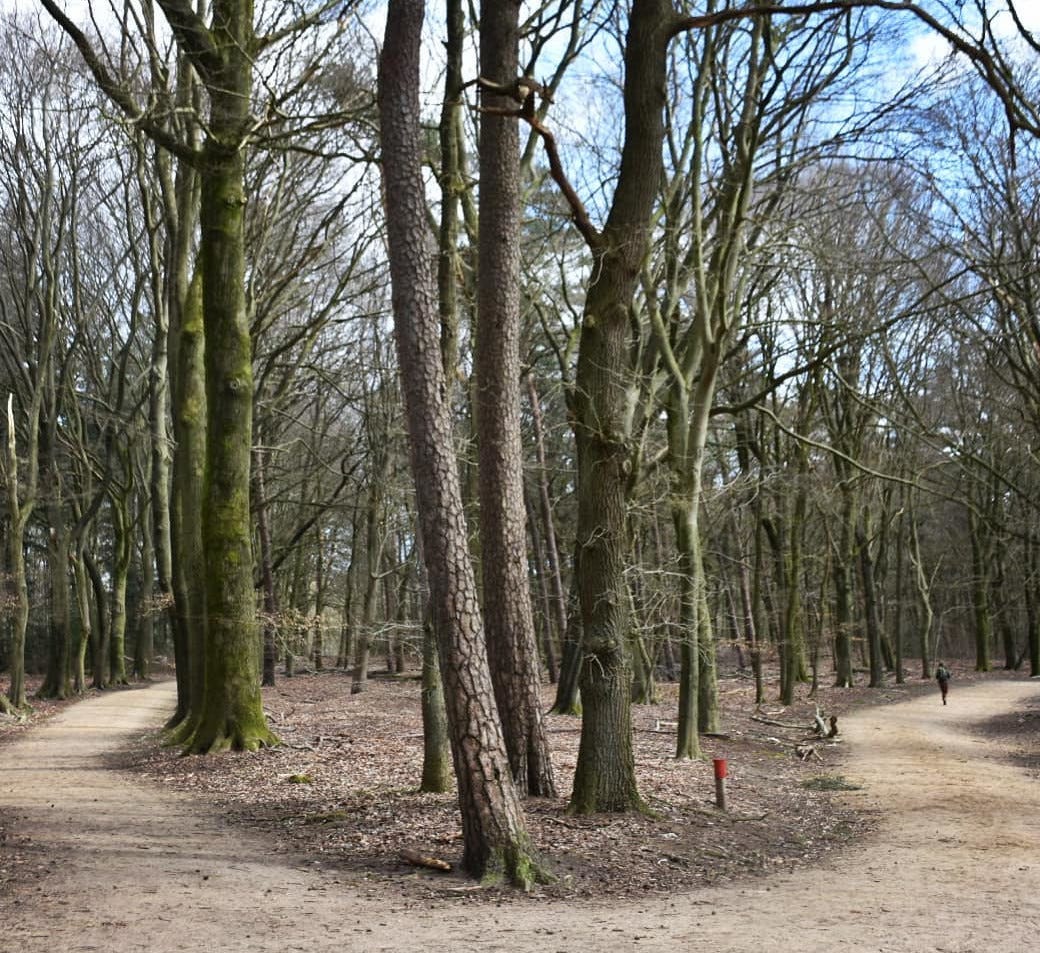Tectonic shifts underway
Regime Change is coming to The Hague, slowly but surely.
In my post discussing the recent (15 March) elections for the Dutch Upper House, the so-called Senaat, I spoke of the huge upset for the ruling coalition as being yet another earthquake hitting the Netherlands (not just Groningen this time, but the country as a whole). In his analysis of the situation, veteran pollster and data guru Maurice de Hond deployed the very same metaphor — and took it a step further. Using, as he said, the figure of speech popular in California, the contours are taking shape for a “Big One”, one of those massive earthquakes which strikes the West Coast of the US (and the Pacific Rim as a whole) from time to time, wreaking the kind of immense havoc that the 1906 earthquake did to San Francisco.
Based on his polling data, De Hond says that the massive electoral shift that took place during the Upper House elections will in due time be replicated in the more important Dutch Lower House, the Tweede Kamer. In the Dutch parliamentary system, elections for this parliamentary body determine which parties form the Cabinet (the prime minister and the various the ministerial posts). Reflecting the historically pluralistic character of Dutch society, elections here are based on the principle of proportional representation, with no single party these days obtaining an absolute majority. In fact, we are going in the opposite direction, with ever more fragmentation.
Very generally speaking, the political landscape of postwar Western Europe has been dominated by center-right Christian Democrats and center-left Social Democrats. This has also been the case in the Netherlands, with minor variations: a once populist, moderate Left (D66) and conservative Liberals (VVD) at different times participating the power-sharing arrangements, with the latter, Mark Rutte’s party, dominating the system for the past decade or so. This postwar configuration is now collapsing, in the Netherlands as well as the rest of Western Europe. In each country, specifics will obviously not be identical, nor the outcome, but the general trajectory is clear.
Here in the Netherlands, what are the new contours to which Maurice de Hond refers? Well, to begin with, the newcomers on the block, the BoerBurgerBeweging, “Farmer-Citizen Movement” (BBB), hitherto a one-woman faction in the Tweede Kamer, not only won a landslide victory by grabbing 17 of the 75 seats in the Senaat, making it the largest party in that legislative body, it has since been polling at nearly twice as high as the ruling VVD party in the Tweede Kamer (34 seats vs 16), a figure that has remained more or less at this level since the March election. BBB swept into power not simply on the basis of votes from Holland’s beleaguered farmers, it enjoys widespread support throughout provincial and rural areas, hence the vote served as a powerful warning to the political establishment: the status quo is no longer acceptable to vast swathes of the electorate.
But there's even more bad news for our ruling elites. Parliamentarian Pieter Omtzigt, who has been in the Tweede Kamer since 2003 as a representative of the Dutch Christian Democrat Party (CDA), resigned from the party last year and now serves as a one-man independent faction within the Lower House. Thanks to his dogged, tenacious efforts to hold Mark Rutte’s government accountable in parliament and his sober, principled public persona, he is by far the most respected politician in country. Maurice de Hond has calculated that this one individual polls at 38 seats in potential Tweede Kamer elections. However, were Omtzigt and Caroline van der Plas, leader of the above-mentioned BBB, to joint forces, they would together pull in some 53 seats, more than a third of the total, what would dramatically reconfigure the political landscape in The Hague. From what it appears, Omtzigt and Van der Plas are both open to forming a joint ticket, but they are keeping their cards close to their chest and nothing has yet been announced. I will return to Pieter Omtzigt in a future post.

Looking at the historical data, Maurice de Hond says a swing of 100 seats between the parties is “unprecedented”, with the record so far dating to 2002, when 92 seats changed hands. Together, the governing parties now count only for 40 seats, a loss of 38 since 2021. In other words, Mark Rutte’s coalition only has half the support it had during the last round of voting, a dramatic fall in confidence.
De Hond, who publishes updates on his busy website every Sunday and are a must-read for those interested following these things, is now reporting that more than sixty percent of the Dutch (an astonishing figure) want to see the coalition collapse and think it’s time for new elections. Mark Rutte fatigue has truly reached the terminal stage. Under his (mis)leadership, none of the festering crises here (the childcare support scandal, compensation for Groningen, a nationwide affordable housing crisis, skyrocketing energy costs, out-of- control immigration, the war on agriculture and fishing) are being adequately addressed. A short time ago, Pieter Omtzigt issued a stern remonstrance in the Tweede Kamer, if the ruling coalition is unwilling or unable to tackle these problems, then it is high time for them to step aside and let others have a go at it.
Mark Rutte continues to preside in The Hague, projecting his sunny, optimistic, ordinary-guy-next-door, “let’s get the job done” vibe as though nothing has changed, giving every indication that he intends to stay put for the indefinite future. But the writing is on the wall, or if you prefer, the ground is clearly shifting. Apropos of the March elections, independent commentator Syp Winia said it was a very clear signal from the voters, and that in response the governing coalition had only two choices: change course or hold elections; muddling onward, our prime minister's default strategy, ultimately will fail. Observers whose judgement I trust say the Cabinet is unlikely to last through the summer and that most likely we’ll have elections in the fall.

A final word about Maurice de Hond: for as long as I can remember he has been an household name in Holland, enjoying a tremendous reputation as a pollster. All that changed during the pandemic. He was highly critical of government policy, arguing, based on his data analysis, that the aerosol-born virus could not be stopped by the litany of measures imposed (face masks, social distancing, compulsive handwashing, vaccination passports, etc), that one measure that would demonstrably lower the infection would be improving indoor ventilation. His dogged questioning of the consensus, which he continues to this day, such as with the very concerning issue of ongoing excess mortality rates, means he has been categorically “excommunicated” by the media establishment.
To mark his 75th birthday De Hond published a memoir in February about which he was interviewed by De Andere Krant, one of the thriving alternative news sites (and a printed newspaper in this case) that is filling in the void left by the increasingly discredited and irrelevant legacy corporate media, De Hond spoke bitterly about his exile from the weekly mainstream TV news shows, where he was formerly a fixture. “The media have degenerated from watchdogs of democracy to lapdogs,” is his pithy observation. “They are now trapped in their own narrative, but cannot — and will not — go back.”
A note to my readers: when I started this Substack around a year ago, I wanted to offer a mix of Dutch-specific commentaries as well as tackle topics not limited to the Netherlands. I am for two reasons reluctant to dive too deeply into the weeds of Dutch politics: one, I’m not sure how much of interest this would be to non-Dutch readers, and two, more importantly, even though I have lived here for many years I’m not always certain I fully understand the political landscape here, which even on the best of days can appear Byzantine and opaque to relative outsiders like myself. True, the domestic politics of most countries probably look Byzantine from the outside, but nonetheless the historically enduring legacy of what I could call the silo system (probably not a perfect translation of “zuilen”) has produced a Dutch political culture with a lot of moving parts. To those Dutch people reading along here, I hope you will chime in with comments, corrections and/or clarifications if I ever miss the mark. Dankjewel!


